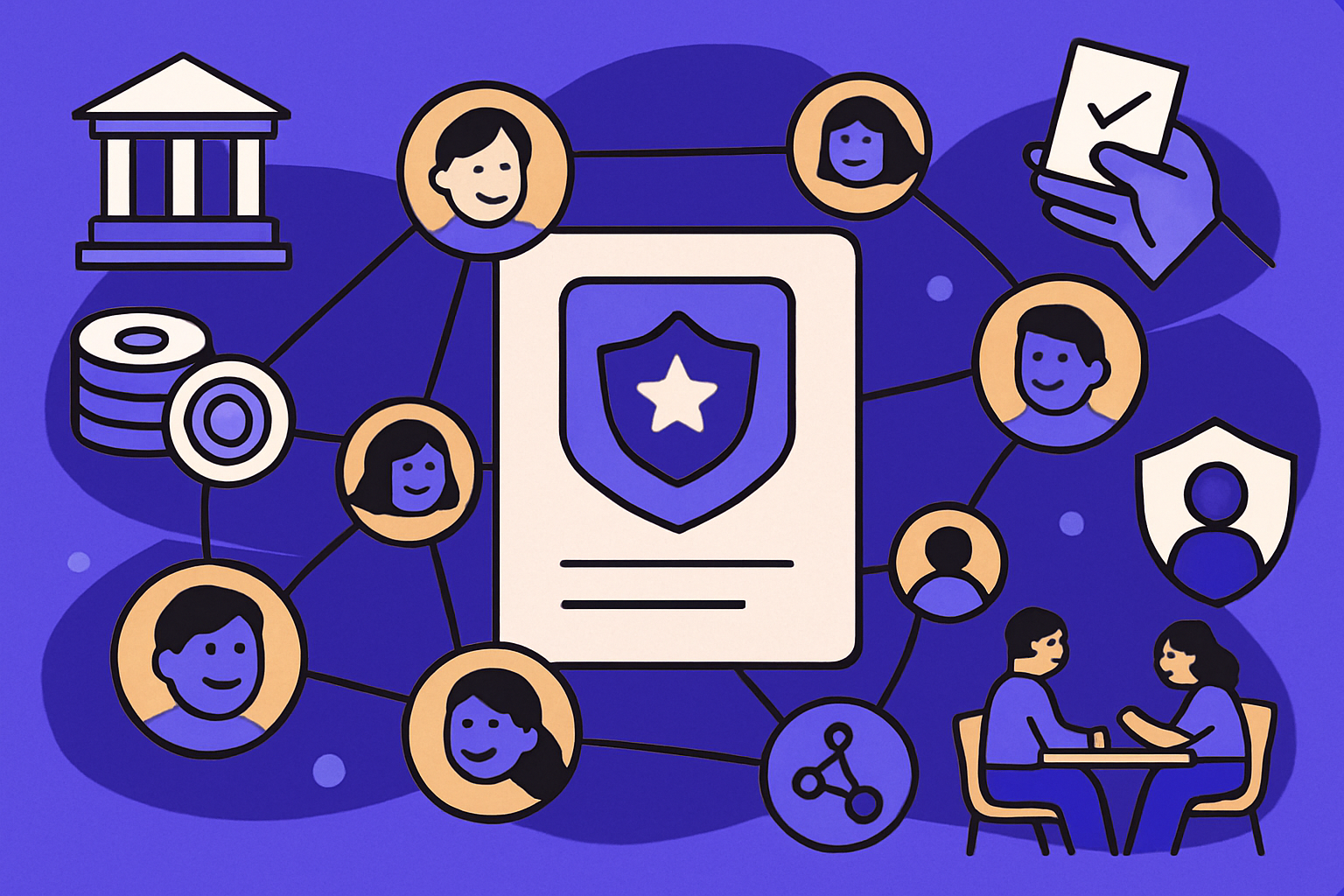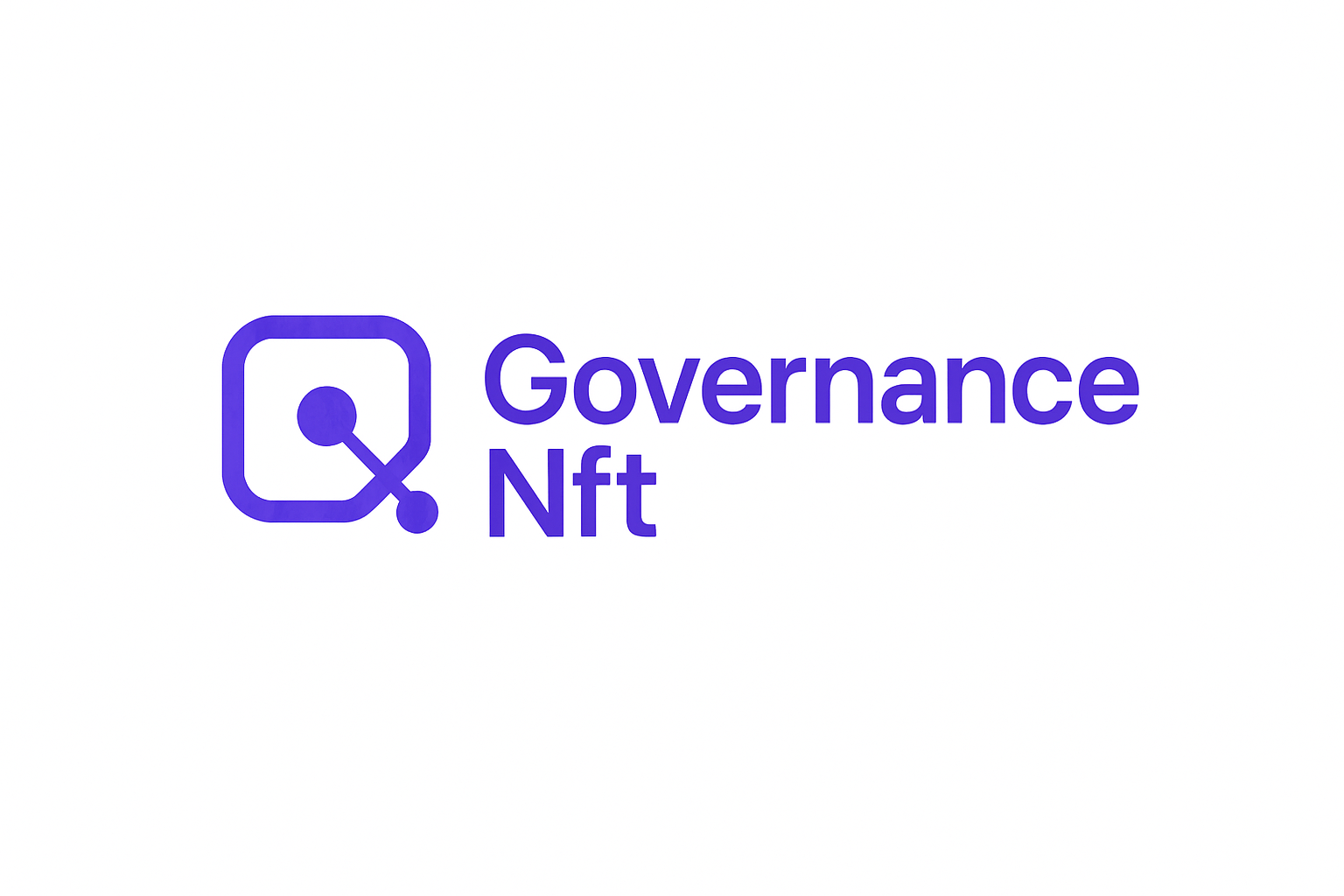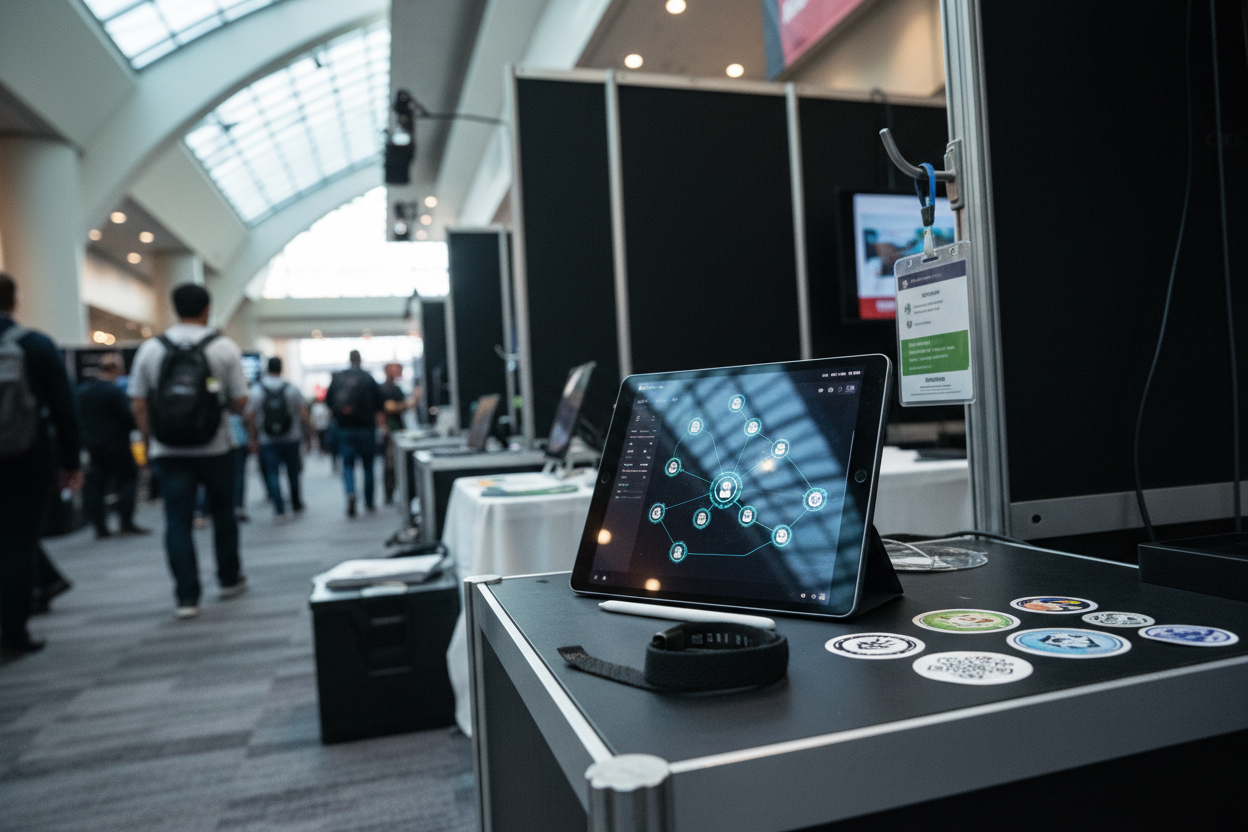
Reputation-weighted voting is rapidly redefining how DAOs make decisions, moving beyond the old paradigm where voting power was simply a function of token ownership. With governance NFT badges, communities now have the tools to recognize and reward meaningful contributions, ensuring that influence is earned rather than bought. This shift towards meritocratic governance not only enhances transparency but also transforms the incentives that drive member engagement.

What Are Governance NFT Badges?
Governance NFT badges are unique, onchain credentials that represent an individual’s reputation within a DAO. Unlike fungible tokens, each badge is non-transferable and tied to specific actions or achievements, think project leadership, code commits, proposal authorship, or sustained community moderation. This means your voting weight is no longer just about what you hold but what you’ve actually contributed.
This model solves a fundamental problem in decentralized governance: token whales can no longer dominate votes simply by accumulating assets. Instead, members who actively build and sustain the community gain real influence at the decision-making table.
How Reputation-Weighted Voting Works with NFT Badges
The process begins by defining clear criteria for earning each badge. For example, a developer might receive a “Core Contributor” badge after merging five pull requests. A community manager could earn a “Super Moderator” badge after hosting ten successful events. These criteria are transparent and enforced by smart contracts, removing bias and manual overhead from the equation.
Once issued, these badges plug directly into voting platforms like Snapshot or Tally. The DAO configures its governance system so that each badge carries a specific vote weight, for instance, a “Lead Developer” badge might be worth 10 votes while an “Event Host” badge might be worth 3. When proposals are put forward, voting power is dynamically calculated based on members’ badge portfolios rather than their token balances.
This approach has already been adopted by leading DAOs on platforms such as Optimism and Metopia, where it’s proven to increase both fairness and participation rates. For more details on implementation strategies and real-world case studies, check out our guide on how governance NFT badges enhance DAO voting power.
Key Benefits: Meritocracy in Action
The move to reputation-weighted voting with decentralized voting badges unlocks several advantages:
- Meritocratic Influence: Voting power flows to those who contribute most, whether through code, coordination or creativity, not just capital.
- Sybil Attack Resistance: Since badges are unique and non-transferable, they act as digital fingerprints for real contributors, making it much harder for malicious actors to game the system with fake accounts.
- Transparent Reputation Systems: Onchain records of badge issuance create an immutable public ledger of contributions, a living resume visible to anyone in the ecosystem.
- Enhanced Engagement: Members are incentivized to participate more deeply when their efforts translate directly into recognized influence over key decisions.
If you want to dig deeper into how DAOs use NFT badges to assign voting power and track contributions across roles and projects, see our dedicated resource: how DAOs use NFT badges to assign voting power.
To maximize the impact of governance NFT badges in your DAO, it’s essential to combine robust technical infrastructure with community-driven processes. Start by ensuring badge criteria are co-created with input from core contributors and stakeholders, this keeps the system credible and aligned with your community’s evolving values. Next, leverage automation: smart contracts should handle badge issuance, revocation, and updates based on transparent onchain activity. This minimizes manual intervention and helps maintain trust.
Integration is key. Modern DAOs use platforms like Snapshot or Tally to connect badge-based reputation directly to onchain voting logic. Whenever a new proposal goes live, the system reads each wallet’s badge inventory and calculates voting weight accordingly, no spreadsheets or backroom deals required. The result? Every member sees exactly how their contributions translate into influence, right as they cast their vote.
Practical Challenges, and How to Solve Them
Of course, even the most elegant system faces real-world hurdles. One challenge is badge inflation: if badges are too easy to earn, they lose value and dilute influence. Counter this by regularly reviewing criteria and sunsetting outdated badges. Another risk is subjectivity in contribution assessment. Mitigate bias by automating as much as possible, use verifiable metrics like commits merged or proposals passed rather than subjective nominations.
Security is non-negotiable. Conduct regular audits of badge smart contracts to prevent exploits or unauthorized minting events. And always keep a public record of all issued badges for auditability, transparency is your best defense against manipulation.
Real-World Impact: Building Trust Through Transparency
The adoption of governance NFT badges for reputation-weighted voting doesn’t just change who gets to vote, it transforms the very nature of DAO participation. Members see a direct line between their contributions and decision-making power, which boosts morale and encourages long-term engagement. Publicly visible badge portfolios also help new members identify trusted leaders and domain experts within the community.
This approach has already proven its worth in DAOs focused on everything from open-source development to peacebuilding initiatives. By tying influence to real work rather than wallet size, DAOs can sidestep many pitfalls of traditional token-weighted systems, like plutocracy or apathy, and instead cultivate a culture where every contribution counts.
If you’re ready to implement this model in your own DAO or want deeper technical guidance, explore our advanced walkthroughs on enhancing transparency with governance NFT badges.
The future of decentralized decision-making is dynamic, transparent, and meritocratic, and governance NFT badges are at the heart of this transformation.






